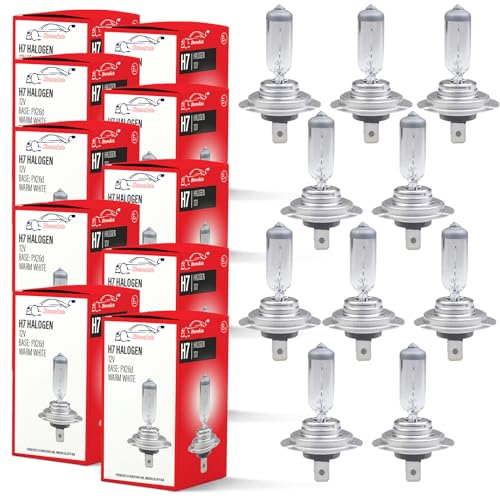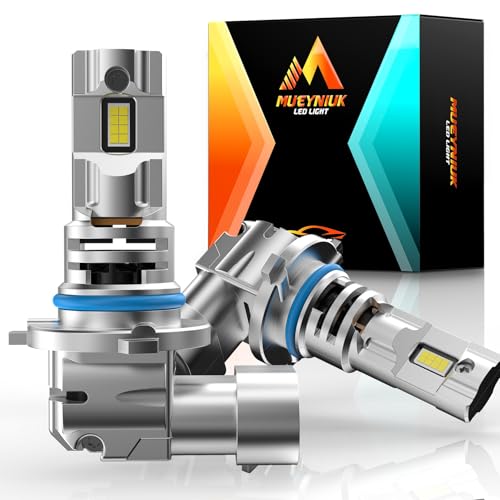Understanding H7 Bulbs: What You Need to Know
What are H7 Bulbs?
H7 bulbs are a popular type of halogen headlight bulb commonly used in vehicles. They are known for their distinctive ‘H’ shape and typically have a single filament. These bulbs are primarily designed for low beam and high beam headlights. When it comes to brightness, H7 bulbs produce a clear white light, significantly enhancing night visibility, making them a preferred choice for many drivers.
Why Use H7 Bulbs?
Opting for H7 bulbs can lead to a noticeable improvement in your driving experience at night. Their design allows for efficient light projection, ensuring that the road ahead is well illuminated. Furthermore, these bulbs are widely available and often more affordable than their counterparts. If you need a reliable illuminating solution, H7 bulbs are worth considering.
Key Features of H7 Bulbs: Brightness, Lifespan, and Efficiency
Brightness Levels of H7 Bulbs
One of the most critical factors when choosing H7 bulbs is brightness, which is measured in lumens. An ideal H7 bulb will produce approximately 1500 lumens. This level of brightness is usually sufficient for clear visibility on most roads. Many drivers prefer bulbs that offer a balance between bright light and comfort, ensuring that visibility is maximised without causing glare to oncoming vehicles.
Lifespan of H7 Bulbs
Typically, H7 bulbs boast a lifespan of around 500 to 1000 hours. Factors influencing this lifespan include the quality of the bulb and usage patterns. Opting for high-quality bulbs can extend lifespan. It’s wise to check user reviews and product details when aiming for longevity, as some brands offer bulbs that last significantly longer.
Energy Efficiency of H7 Bulbs
Energy efficiency is another essential consideration when selecting H7 bulbs. Halogen bulbs generally consume around 55 watts of power. However, opting for newer models or higher-efficiency designs can lead to reduced power consumption without sacrificing brightness. Choosing more efficient H7 bulbs not only helps save on fuel but also ensures your vehicle’s electrical system functions well.
Choosing the Right H7 Bulb for Your Vehicle: A User-Friendly Guide
Identifying Your Vehicle’s Needs
When selecting H7 bulbs, it’s crucial to consult your vehicle’s manual to identify the specific requirements. Some vehicles may require a certain type of H7 bulb depending on their lighting system. Additionally, consider whether you need standard bulbs or upgraded options that may provide a more intense light output.
Exploring Different Brands and Options
As you explore the market, you’ll find various brands offering H7 bulbs. It’s essential to research and compare options. Look for customer reviews that highlight reliability and performance. Choosing from trusted brands can often assure quality, leading to better driving experiences and longer usage.
Installation Tips for H7 Bulbs: Easy Steps to Follow
Preparing for Installation
Before beginning the installation, gather necessary tools such as gloves and a clean towel. Wearing gloves is critical to ensure that oils from your skin do not transfer to the bulb, which can affect its performance and lifespan. Always make sure that your vehicle is turned off and that you have the correct replacement bulb ready.
Step-by-Step Installation Process
Start by accessing the headlight assembly of your vehicle, which usually entails removing the cover or housing. Gently twist and pull the old H7 bulb to release it from its socket. Carefully insert the new bulb, ensuring it fits snugly. Once in place, replace any covers you removed, and finally, test the new bulb by turning on your headlights.
Frequently Asked Questions About H7 Bulbs: Your Common Queries Answered
How often should I replace H7 bulbs?
It’s a good practice to replace H7 bulbs every couple of years, or sooner if you notice a significant decrease in brightness or a bulb failure. Regular checks can help ensure your vehicle remains roadworthy and safe to drive.
Can I use H7 bulbs in place of other types?
It’s vital to use the appropriate bulb specified for your vehicle, as using incorrect bulbs can compromise performance and safety. Always stick to the specifications outlined in your vehicle’s manual to avoid any electrical issues or improper fitting.





















